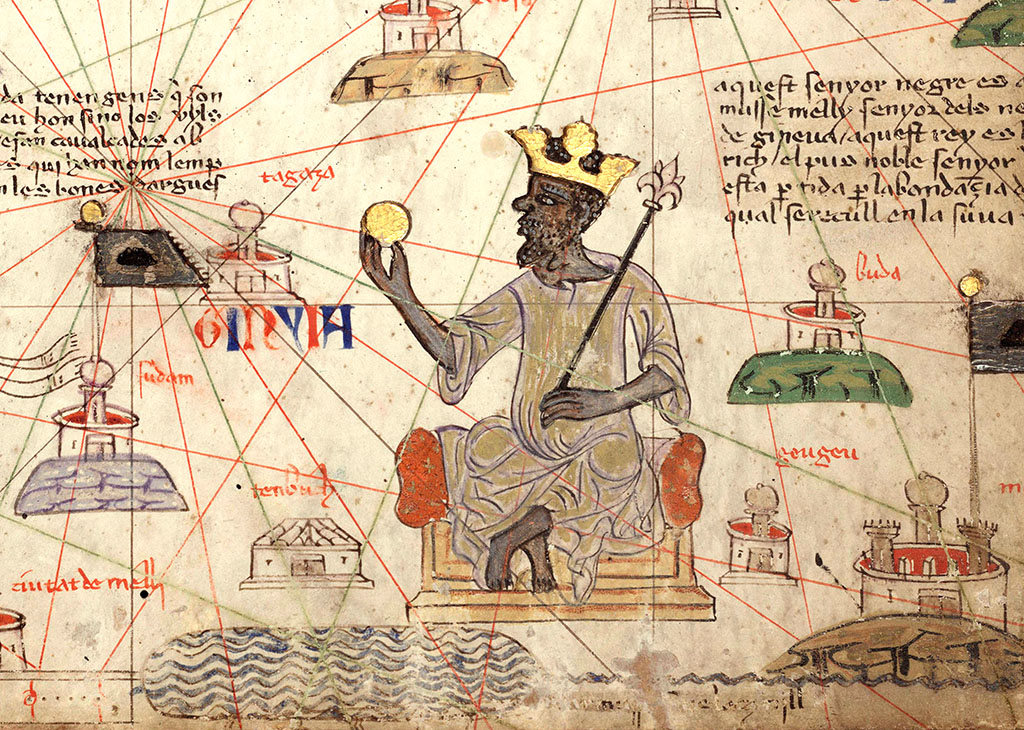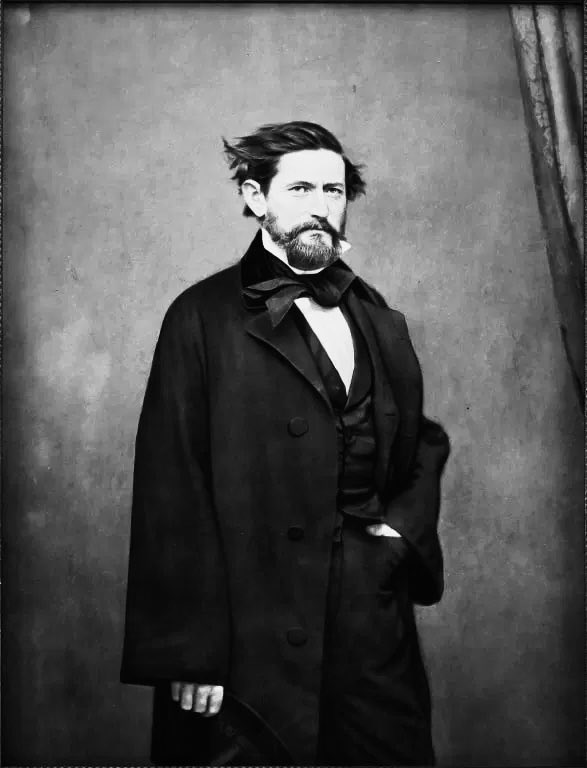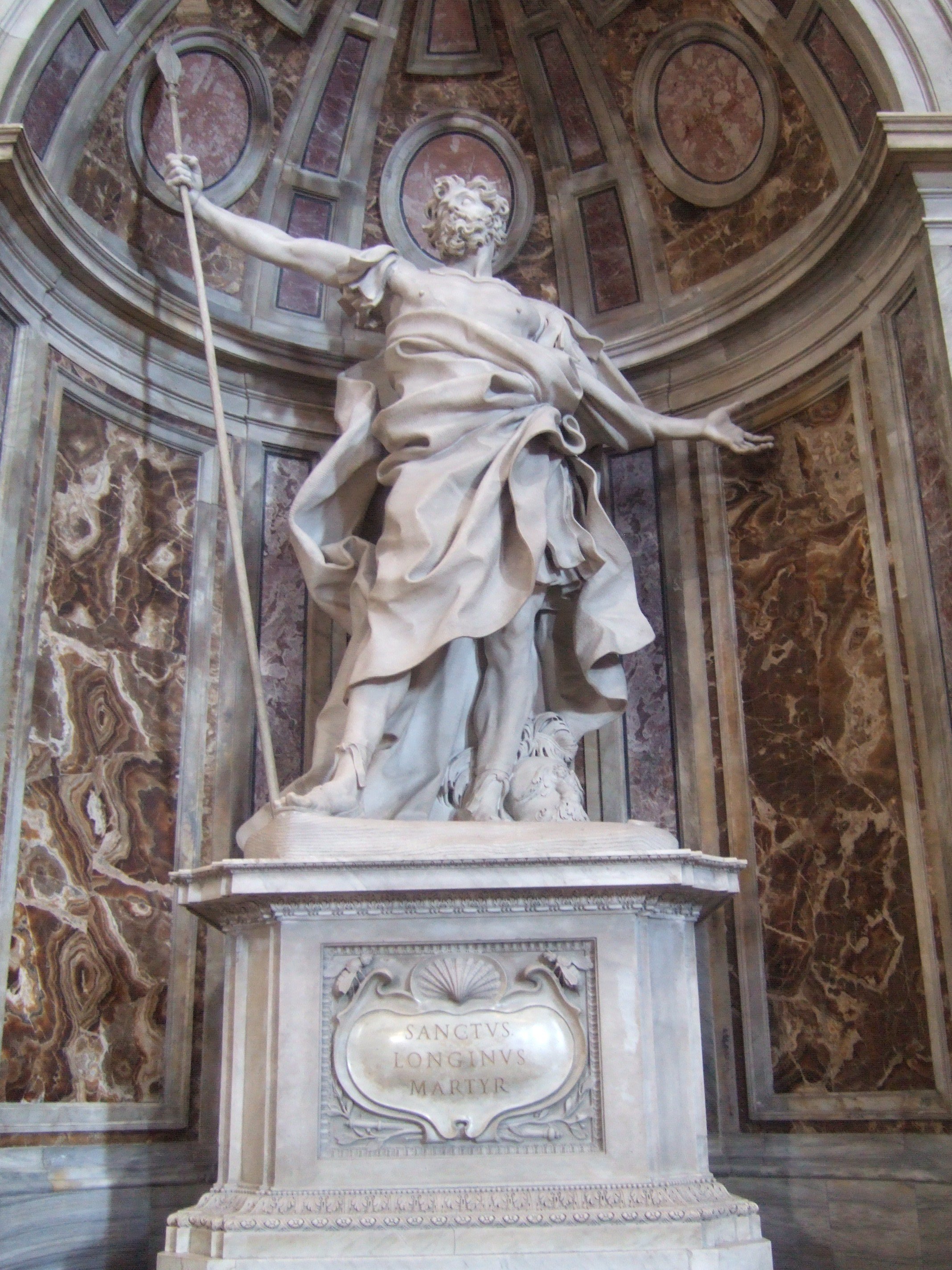Wealth and Wisdom: The Legacy of Mansa Musa
Mansa Musa’s reign began in the early 14th century, when the vast and flourishing Mali Empire stretched across the West African savannah. Third in the line of the Mali dynasty...
posted: 04/24/2025
Mansa Musa’s reign began in the early 14th century, when the vast and flourishing Mali Empire stretched across the West African savannah. Third in the line of the Mali dynasty, he inherited a kingdom enriched by the gold and salt trade, but he transformed it into a global power. Under his rule, Mali became synonymous with wealth and prosperity, drawing the attention of empires far beyond its borders.
Born around 1280, Musa was the nephew of Sundiata Keita, the legendary founder of Mali. When his predecessor, Mansa Abu Bakr II, embarked on a maritime expedition into the Atlantic and never returned, Musa assumed the mantle of emperor. He proved a keen leader, swiftly restoring order and expanding Mali’s reach to include fertile river valleys and ancient trading centers, forging alliances that would cement his authority.
Mansa Musa’s court was a hub of commerce and culture. He oversaw the construction of caravanserai—rest stops for traders—and regulated the routes that carried gold north to the Maghreb and salt from the Sahara. The bustling markets of Jenne and Gao buzzed with merchants from as far afield as the Mediterranean, exchanging goods, ideas, and faith. This vibrant economy underpinned Mali’s dominance and filled its coffers to overflowing.
In 1324, Mansa Musa undertook the pilgrimage to Mecca that would etch his name into the annals of history. Accompanied by thousands of attendants and a fortune in gold, he journeyed across the Sahara to Cairo, where his lavish gifts so devalued local currency that the effects rippled through Egypt for years. Word of his procession reached Europe, and his portrait found a place on the Catalan Atlas of 1375, solidifying his legend in the medieval imagination.
The pilgrimage also marked a spiritual and educational mission. On his return, Musa invested in Islamic scholarship back home. He commissioned the famed architect Abu Es Haq es Saheli to build grand mosques in Timbuktu and Gao, including the Djinguereber Mosque, whose soaring mud-brick minarets became a beacon of learning. Timbuktu blossomed into a center for scholars, drawing students and manuscripts from across the Islamic world.
Mansa Musa’s patronage extended to libraries and universities, where theologians, mathematicians, and astronomers studied under his auspices. He established endowments to support scholars and ensure the transmission of knowledge. His generosity laid the foundations for a golden age of West African intellectual life, one that would endure long after his death.
When Mansa Musa passed away around 1337, he left behind a realm transformed. His legendary wealth and devotion to faith reshaped Mali’s cities and carved his story into global consciousness. Today, he stands as a testament to the power of leadership that blends prosperity with piety, a ruler whose legacy continues to inspire awe and admiration.

 - Articles
- Articles

